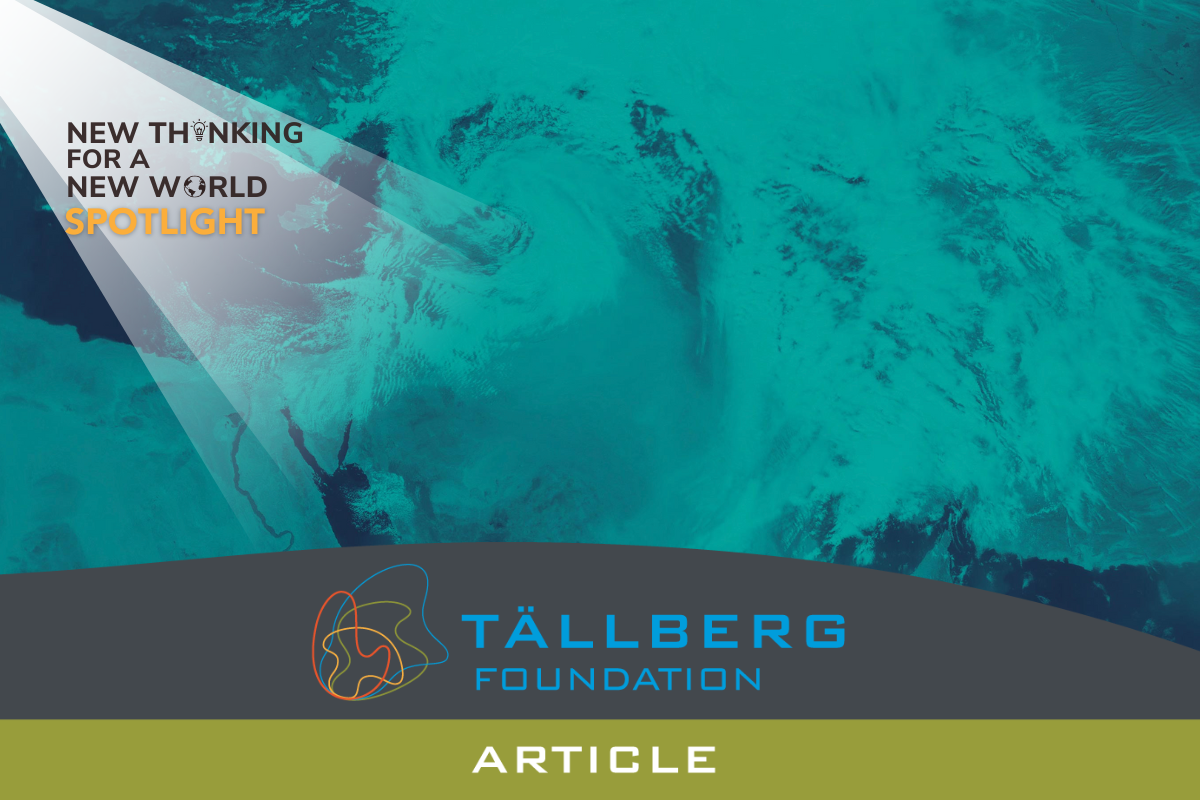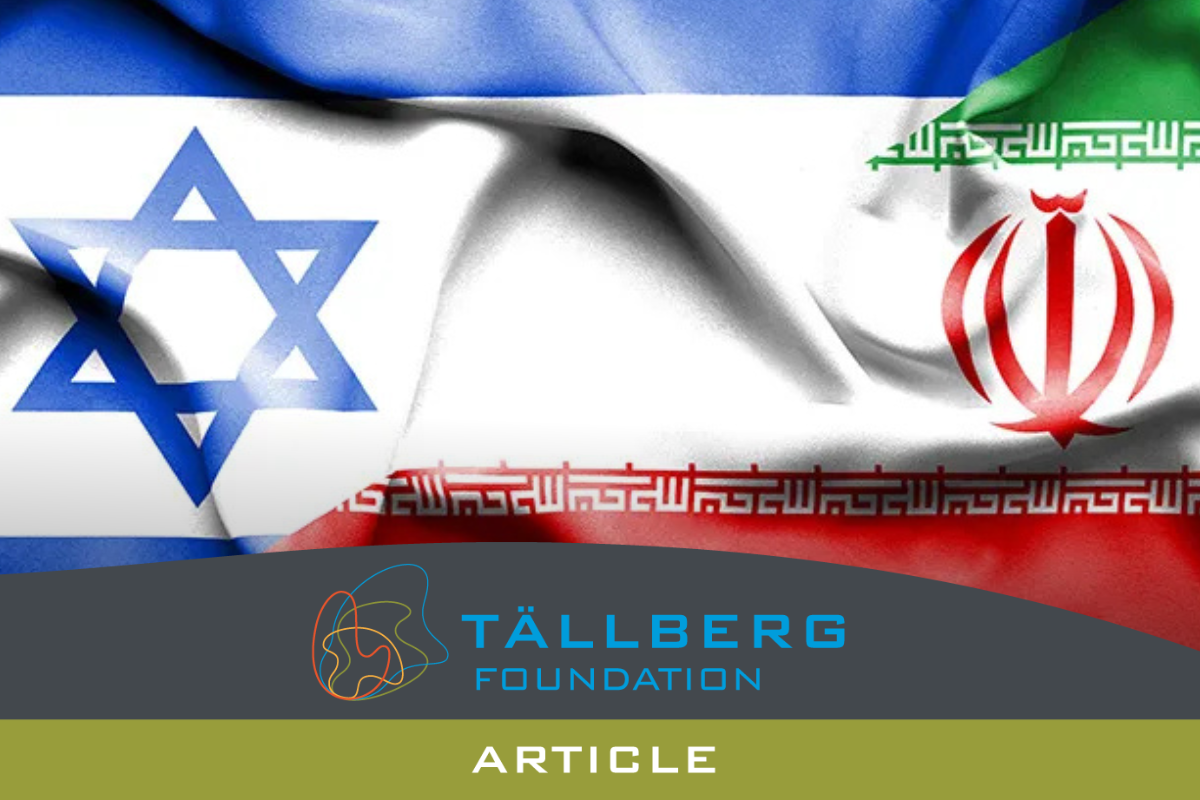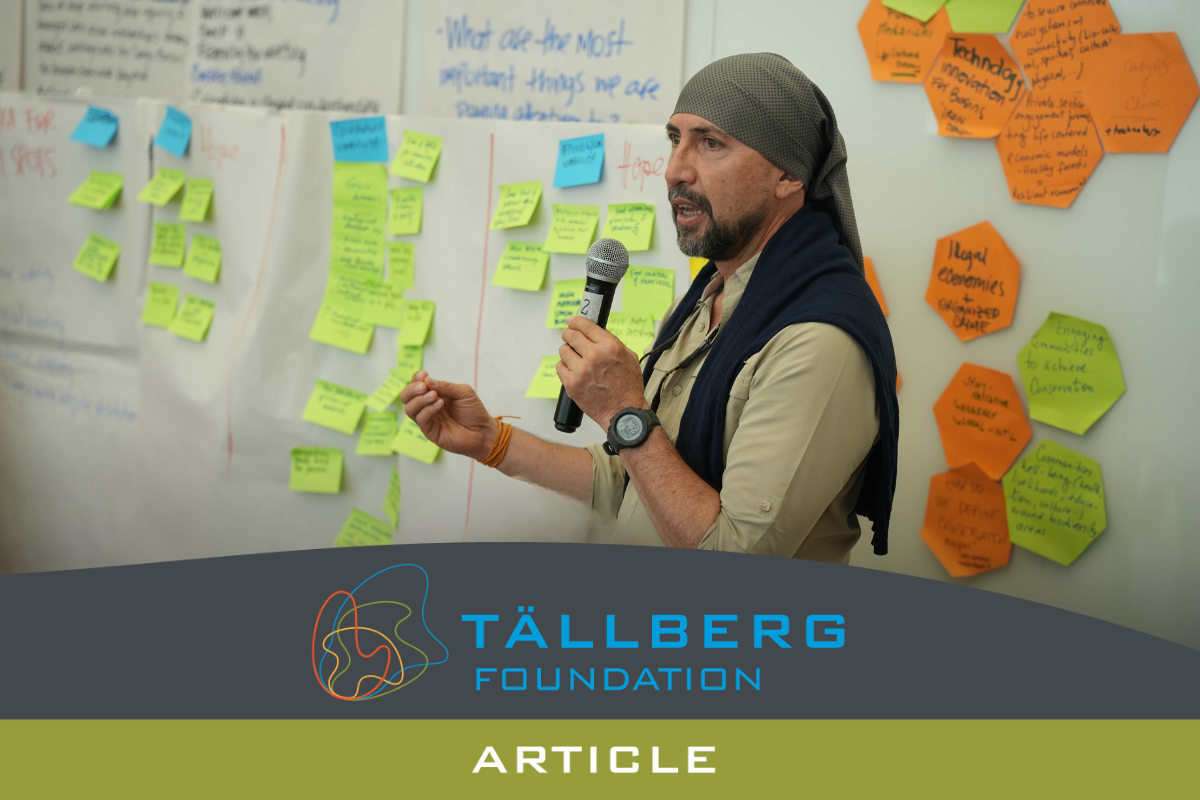Consider a few recent headlines:
- “Exploding pagers wreak havoc among Hezbollah”—The Times
- “Sinwar Says Hamas Ready for ‘Long War of Attrition’”—Asharq Al-Awsat
- “Houthis claim downing another US MQ-9 Reaper drone”—Al Jazeera
- “Gaza death toll reaches 41,226 amid relentless Israeli assault”—Anadolu Ajansi
- “Ex-Defense Minister Target of Hezbollah Assassination Attempt”—Jerusalem Post
The Middle East is a mess, perhaps on “the brink of a regional war” as the Jordanian Foreign Minister worried aloud a few days ago—and there is no doubt that the objective circumstances, never mind the tabloid headlines, are awful and worsening.
However, maybe what’s amazing about the Middle East today is not how violent it is. Perhaps what’s amazing is how violent it isn’t.
That’s not to minimize the non-stop, deadly violence in Gaza or the Israeli losses or the continuing charnel house of Syria or the Houthi attacks on shipping or the ping ponging attacks among the Israelis, Iranians, Hezbollah and other non-state actors. Rather, considering all the hatred and killing, it is almost incredible that there has not been a bigger conflagration.
Why not?
The Americans would probably argue that their efforts—in partnership primarily with the Qataris and Egyptians—have prevented that bigger explosion. Of course, that’s possible, but many people in the region seem to see the United States as more part of the problem than of the solution: a biased arbiter who pretends to be neutral, a great power who is reluctant to exercise power, a negotiator who won’t or can’t engage directly with some of the countries and groups who matter most to solving anything. Indeed, those shortcomings may be why the various “deals” pursued by the White House over the past months never close: the security agreement with the Saudis, the Saudi-Israeli rapprochement, and the serial Gaza ceasefires-about-to-happen.
Thank God they are trying, but “A” for effort, and “F” for results.
The question remains whether the fact that the objectively bad regional situation has not gotten dramatically worse is a sign that worse is yet to come or, possibly, that some new dynamic could be at work.
Suspend disbelief for a moment. What if the ongoing change in leadership around the Gulf is opening space for some new thinking about how to manage regional politics? What if the Great Powers’ boots-on-the-ground military and political interventions that were common throughout the 20th and into the 21st century are more or less finished? What if the hatreds that have driven the Sunni-Shia and Israeli-Arab conflicts have actually dissipated, not intensified in spite or even because of the slaughter in Gaza? What if the larger countries in the regions are beginning to wonder if they might have more in common with each other than with distant Great Powers who, in any event, have become unreliable? What if agency is shifting from outside to inside the region? Could the leaders of the region do what the Americans, Russians, British, French and others could not do: create peace for themselves?
Pie in the sky, probably. But is there any evidence that even suggests this kind of alternative reality could be bubbling below the surface?
- Of course, the absence of something is never proof of something else. But as angry as most Arabs are at Israel (in a January poll of 16 Arab countries two-thirds of respondents said that the October 7th attacks were legitimate and almost all expressed support for Palestinians*), the infamous “Arab street” has been remarkably quiet despite the horrific casualties of the Gaza war. Perhaps ordinary people want peace and prosperity more than war and ideology.
- What about Israel? Under Bibi Netanyahu, the country seems driven, not only to revenge the October 7 attacks, but to destroy as many of its enemies as possible, despite massive collateral damage (which Palestinians believe is anything but “collateral”) and international opprobrium. The bloodletting comes with huge costs: the IDF is exhausted; the economy is under pressure; the domestic political divides have become deeper and more personal; more Jews are leaving than migrating to the country. Arguably Israel’s future direction is less clear than it has been in decades. Once Bibi leaves the stage, isn’t it likely that Israel will do what it always does after its wars: find new leaders and recalibrate its future? As Israeli Leora Hadar said on New Thinking for a New World, “We have to explore the new opportunities that can arise from such a terrible disaster.”
- The election of President Pezeshkian in Iran could be an important shift in Iran’s attitude, building on last year’s rapprochement with Saudia Arabia. As Hussain Mousavian recently said on New Thinking for a New World, “Pezeshkian had been disqualified by the Guardian Council, but with the support of Supreme Leader Ayatollah Khamenei, he was able to enter the election and win. Therefore, as of now, he has the support of the Supreme Leader, the Revolutionary Guard, the Reformist moderate faction, and the moderate conservatives.” Is it possible that the Iranian people and even their leaders are beginning to realize that leading the “Axis of Resistance” will never make life more livable for them?
- None of the Arab countries who have formally recognized Israel—Egypt, Jordan, United Arab Emirates, Bahrain, Sudan, and Morocco—broke ties after the Gaza fighting started. That would certainly have happened a decade or two ago.
- Economic relationships remain relatively robust, at least in context. Bilateral trade between Israel and the UAE, Morocco, Jordan, Bahrain, and Egypt during the first five months of 2024 totaled roughly $2 billion. Even the Saudis are letting trade and investment continue and expand—no boycotts to be seen.
- As for the Saudis, they continue to negotiate what they insist must be an irrevocable security agreement with the United States (which presumably means ratified by the U.S. Senate) while the U.S. insists such a deal must be paired with a bilateral Saudi/Israeli agreement including diplomatic recognition. Whether or not the Israelis are also still part of the negotiation is unknown. However, as unlikely as it might seem today, British Arabist Neil Quilliam insisted in a recent Tällberg podcast, “Crown Prince Mohammed bin Salman…has made very bold moves in the past and I think if, if he believed it was in Saudi Arabia’s interest to normalize, he would just go ahead and do so.”
- Then there is China whose relationship with Iran has clearly intensified, but which seems to want to add diplomatic and security elements to its already outsized economic and financial relations with the Saudis, Emiratis and others. The most visible manifestation was the role played by Beijing in facilitating renewed diplomatic ties between Teheran and Riyadh, but there is evidence that China is also actively seeking inroads as a weapons supplier (including ballistic missile technology) and possibly in the intelligence and cybersecurity areas. Could China, with its non-intervention philosophy and economic and financial clout, become the makeweight that keeps Iran and Saudi Arabia in balance instead of at each other’s throats (a role that the United States cannot play)?
- Indeed, it’s possible—as Mousavian also argued in Tällberg’s podcast—“that the Gaza war…could be a factor for cooperation and convergence between Iran and its neighbors, with even the possibility of establishing a collective cooperation system.” Admittedly, his idea that Persians and Arabs could be brought together because of shared support for Palestinians necessarily excludes the Israelis.
But the Israelis can’t be excluded; they have long since passed the point when they could be pushed into the sea, anxieties reawakened by October 7th notwithstanding. However, the politically incorrect question is whether the Palestinians can be excluded.
Arguably, that proposition was tested over the past decade or so as the Palestinian cause slipped from visibility almost everywhere, as Arab countries explored new relationships with Israel (including out of sight security cooperation), and as living conditions in Gaza, the West Bank, and the Jordanian camps deteriorated. But ‘out of sight, out of mind’ probably ended on October 7th.
Why only probably? Because, as described above, there is little evidence that the Gaza war has really changed the attitudes that allowed the Palestinians to be ignored in recent years. And because the only idea for a new way forward is a tired old idea—the “two state solution”—that large majorities of the people of the proposed two states reject.** It seems beyond unlikely that the outside powers who like the proposal could or would be prepared to impose such a settlement, which makes it (still) dead on arrival.
But will concern, even sympathy, for the Palestinians be enough to retard what seems to be a slow movement towards a different kind of Middle East more generally? Perhaps it should, but history rarely works that way.
None of this is to suggest that the peace and harmony are about to break out in the region; there are too many actual and potential conflicts and too much ongoing death and destruction.
But at other times and other places the carnage of war has become the cradle of peace.
Could it be happening in the Middle East? Is that new thinking or crazy thinking? Tell us what you think in the comments below.
* Arab Center for Research and Policy Studies (Doha Institute), January 2024:
https://www.dohainstitute.org/en/News/Pages/arab-public-opinion-about-the-israeli-war-on-gaza.aspx
**According to the Palestinian Center for Policy and Survey Research, September 2024 , sixty-six percent of Jewish Israelis and 61% of Palestinians believe the other side wants to commit genocide against them, and an additional 27% of Jewish Israelis and 26% of Palestinians say the other side wants to conquer the land “from the river to the sea” and expel them. 94% of Palestinians and 86% of Israelis say that the other side cannot be trusted.
PODCAST EPISODES MENTIONED IN THE ARTICLE
Israeli’s Divided House
Israel is at war with external threats like Hamas and Iran, but internal divisions are also deepening. Over 75% of Israelis are worried about political rifts and religious tensions, which have been exacerbated by recent extremist incidents. This episode explores these internal conflicts through the voices of Leora Hadar, a West Bank settler and peace activist, and Naty Barak, a kibbutz resident and sustainability expert.
A New Iran?
This summer, Iranians elected Masoud Pezeshkian, a reform-minded cardiac surgeon, as president, defying expectations that hardliners would dominate. Uncertainties remain about his support from Iran’s Supreme Leader and Revolutionary Guards, and his ability to tackle major domestic and international issues, including Western sanctions. Former Iranian diplomat and Princeton scholar Hossein Mousavian discusses Pezeshkian’s presidency, Iran’s future, and the implications for Western negotiations.
Deal of the Century?
The past eight months in the Middle East have been marked by significant turmoil, including the horror of October 7th, ongoing violence in Gaza, civilian casualties across the region, and rising tensions between Iran and Israel. Amidst this chaos, American diplomats are pursuing a bold diplomatic solution: a three-way agreement where the U.S. provides a defense guarantee for Saudi Arabia, which would sign a peace treaty with Israel, leading to the end of the Gaza war and a commitment to the two-state solution. This episode features Neil Quilliam, a British expert on Saudi Arabia, discussing the potential and challenges of this ambitious plan.





0 Comments